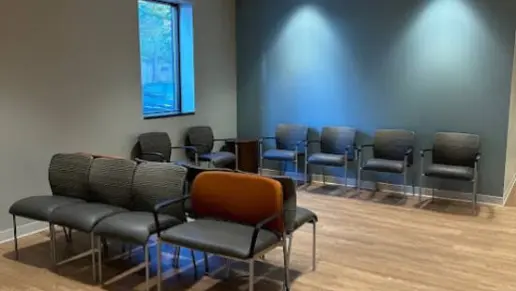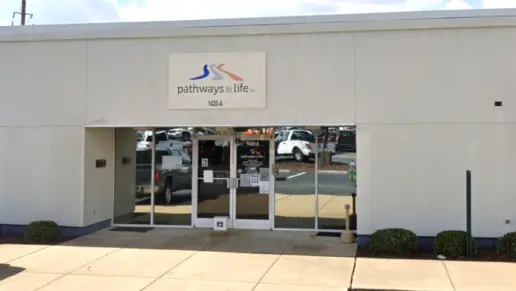About Rowan Treatment Associates
Rowan Treatment Associates is part of North Carolina Treatment Centers, LLC, and is located on Jake Alexander Boulevard in Salisbury, North Carolina. The CARF accredited center offers medication assisted treatment (MAT) for opioid use and narcotic drug disorders. They also treat co-occurring mental health disorders. Most major insurance plans are accepted and they also take Medicare, Medicaid, and some Medicare Advantage plans. There is some state funding for eligible patients.
The clinic is outpatient only and the hours of operation are Monday through Wednesday 5:00 a.m. to 12:00 p.m., Thursday 5:00 a.m. to 10:00 a.m., Friday 5:00 a.m. to 12:00 p.m., and Saturday 5:00 a.m. to 9:00 a.m.
Upon admission to the program, you’ll have an initial meeting to review paperwork, answer your questions, and get an overview of your recovery plan. Be sure and leave yourself a morning for this assessment. The staff embraces a holistic approach to treatment and there’s an emphasis on living a healthy lifestyle. That includes nutritious food and daily exercise.
The center uses methadone and Suboxone for MAT. Both are safe and effective, evidence based therapies for opioid use disorder. The most effective MAT treatment is at least 90 days, though most people are on it longer. Methadone maintenance is usually at least a 12 month commitment.
During treatment, you’ll receive group and individual counseling sessions. Addiction is a physical and psychological disease, so counseling is an integral part of treatment. Many people with substance use disorders have co occurring mental health disorders such as depression or bipolar disorder. Substances are often used to self medicate unwanted mental health symptoms.
Getting to the root of your substance use means addressing your mental health issues as well. Your counselors will help you understand your addiction, what drives it, and offer you better coping mechanisms to avoid relapse. You’ll finish the program with a solid foundation for lifelong sobriety.
Latest Reviews
Rehab Score
Other Forms of Payment
Private insurance refers to any kind of healthcare coverage that isn't from the state or federal government. This includes individual and family plans offered by an employer or purchased from the Insurance Marketplace. Every plan will have different requirements and out of pocket costs so be sure to get the full details before you start treatment.
Medicare is a federal program that provides health insurance for those 65 and older. It also serves people under 65 with chronic and disabling health challenges. To use Medicare for addiction treatment you need to find a program that accepts Medicare and is in network with your plan. Out of pocket costs and preauthorization requirements vary, so always check with your provider.
Medicaid is a state based program that helps lower-income individuals and families pay for healthcare. Medicaid covers addiction treatment so those enrolled can use their coverage to pay for rehab. When a program accepts Medicaid the client often pays very little or nothing out of their own pocket.
Addiction Treatments
Levels of Care
Treatments
The goal of treatment for alcoholism is abstinence. Those with poor social support, poor motivation, or psychiatric disorders tend to relapse within a few years of treatment. For these people, success is measured by longer periods of abstinence, reduced use of alcohol, better health, and improved social functioning. Recovery and Maintenance are usually based on 12 step programs and AA meetings.
There are many types of drug rehab in North Carolina. To receive treatment for addiction, you can choose from many inpatient and outpatient programs. Often, participants start with detox and work through a full continuum of care that continues with ongoing support for long-term recovery.
Opioid rehabs specialize in supporting those recovering from opioid addiction. They treat those suffering from addiction to illegal opioids like heroin, as well as prescription drugs like oxycodone. These centers typically combine both physical as well as mental and emotional support to help stop addiction. Physical support often includes medical detox and subsequent medical support (including medication), and mental support includes in-depth therapy to address the underlying causes of addiction.
Substance rehabs focus on helping individuals recover from substance abuse, including alcohol and drug addiction (both illegal and prescription drugs). They often include the opportunity to engage in both individual as well as group therapy.
Programs


Clinical Services
Men and women enjoy a supportive environment within group therapy sessions for drug and alcohol addiction treatment. You can share your experiences and build connections with your peers while receiving encouragement from individuals who have faced similar challenges.
In individual therapy, a patient meets one-on-one with a trained psychologist or counselor. Therapy is a pivotal part of effective substance abuse treatment, as it often covers root causes of addiction, including challenges faced by the patient in their social, family, and work/school life.
Accreditations

The Commission on Accreditation of Rehabilitation Facilities (CARF) is a non-profit organization that specifically accredits rehab organizations. Founded in 1966, CARF's, mission is to help service providers like rehab facilities maintain high standards of care.
CARF Accreditation: Yes
Accreditation Number: 39258
Contact Information
1504 Jake Alexander Boulevard West
Salisbury, NC 28147


